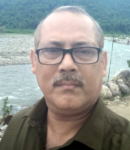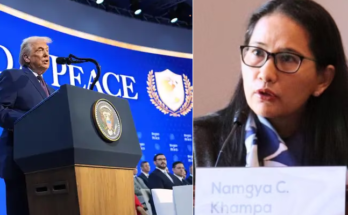 by Nava Thakuria
by Nava Thakuria
As soon as India and Pakistan stepped up military airstrikes on each other following a brutal terror attack at Pahalgam in the Kashmir valley on 22 April 2025, for which an offshoot of Pakistan-based terrorist outfit claimed responsibility, the Balochi people intensified its movement for an independent Balochistan, a major part of which is allegedly under the occupation of Islamabad.
However, the abrupt ‘ceasefire’ between New Delhi and Islamabad on 10 May paused the excitement for the freedom-loving Balochs to some extent. Not only the indigenous population inside the current Balochistan province in western Pakistan, but also the Balochi Diasporas have joined the movement and almost claimed their independence from Pakistan.
The Balochi-descendants in India have even urged the United Nations to recognise Balochistan as an independent country. For over seven decades, the people of Balochistan have been subjected to relentless atrocities by the Pakistani state, including enforced disappearances, military operations, resource exploitation, and systematic cultural suppression, asserted the letter, adding that these actions amount to crimes against humanity and continue to threaten the survival of the Baloch identity. Pointing out that Balochistan remains under occupation and oppression from Islamabad, the association also appealed to Prime Minister Narendra Modi ‘to take a principled and bold step by recognizing Free Balochistan as an independent state’. Such recognition would not only uphold the democratic values that India cherishes but also reaffirm India’s historical and cultural ties with the Baloch people, stated the letter.
Days back, Hyrbyair Marri, president of Free Balochistan Movement, who is currently based in London, reiterated that New Delhi ‘should give Jinnah’s House in Mumbai to Baloch people and term it as ‘Balochistan House’, where Pakistan’s founder Muhammad Ali Jinnah made plans and finally divided India. From the same iconic bungalow (also known as South Court on Mumbai’s Malabar Hill), the Balochs should be allowed to plan for the independence of Balochistan, stated Marri, adding that once Balochistan attains independence Pakistan will simply cease to exist. He also criticized the United Nations as being ‘not impartial’, because the intergovernmental institution continues ignoring the issue of Balochistan, which has otherwise been used by Pakistan as a political tool since 1947. Though Pakistan was created in the name of Islam by the Indian Muslims, it did little for Islam, where Pakistani Muslim Punjabi establishment always used Islam for their political benefits. Islamabad’s obsession with unfounded human rights violations in Jammu and Kashmir brought back the focus on atrocities committed by the Pakistani army on the people of Pakistan occupied Kashmir (which they call Azad Kashmir) and Balochistan.
Prominent Balochi writer Mir Yar Baloch also claimed Balochistan’s independence from Pakistan amid the ongoing New Delhi-Islamabad conflict. He wrote on social media that the UN has already been approached ‘to recognise independence of the Democratic Republic of Balochistan’ and send a UN peacekeeping mission immediately. Asking the Pakistani occupational forces as well as non-Baloch personnel in any intelligence or civil administration to leave Balochistan, the Balochi intellectual also requested the Indian Union government to allow an embassy in New Delhi. Another Balochistan movement activist MB Marri also urged New Delhi not to view the Baloch (an oppressed nation) through the same strategic or cultural lens as for Pakistani nationals. It undermines the history, struggles, and aspirations of the people who have suffered decades of brutal repression under the Pakistani military establishment, stated Marri, adding that the Balochi people should not be recognised merely as an extension of Pakistan, because it simply ignores their right to self-determination, enshrined by the UN principles. The Balochs are an ancient people with their own language, culture, traditions, and a long history of resistance against foreign domination. However, since the illegal occupation of Balochistan in 1948 by Pakistan, Islamabad subjected the Balochi people to unimaginable suffering. Thousands of men, women, and children have been abducted, tortured, and killed by Pakistan’s military and intelligence agencies. Journalists, students, and human rights activists are regularly silenced. The Balochs have been denied their rights, their freedom, and their dignity for more than seven decades, and yet Pakistan continues to portray itself as the victim in this geopolitical drama.
Probably it’s time to stand with the freedom aspiring Balochs.




